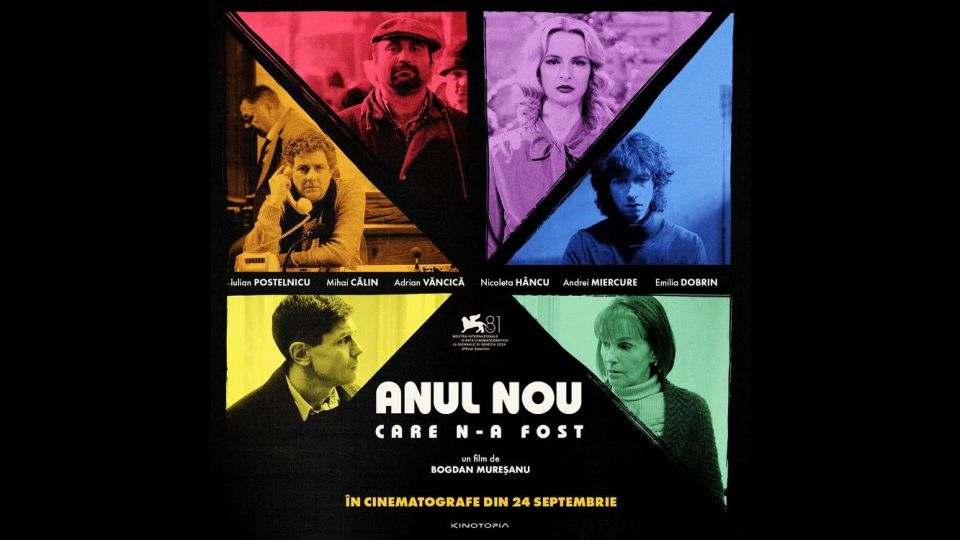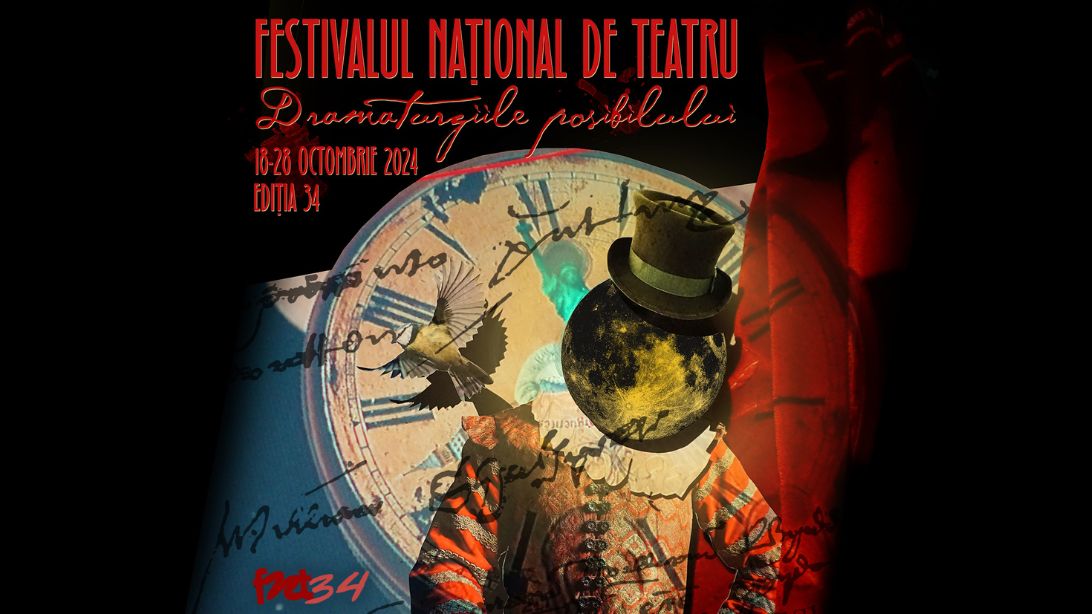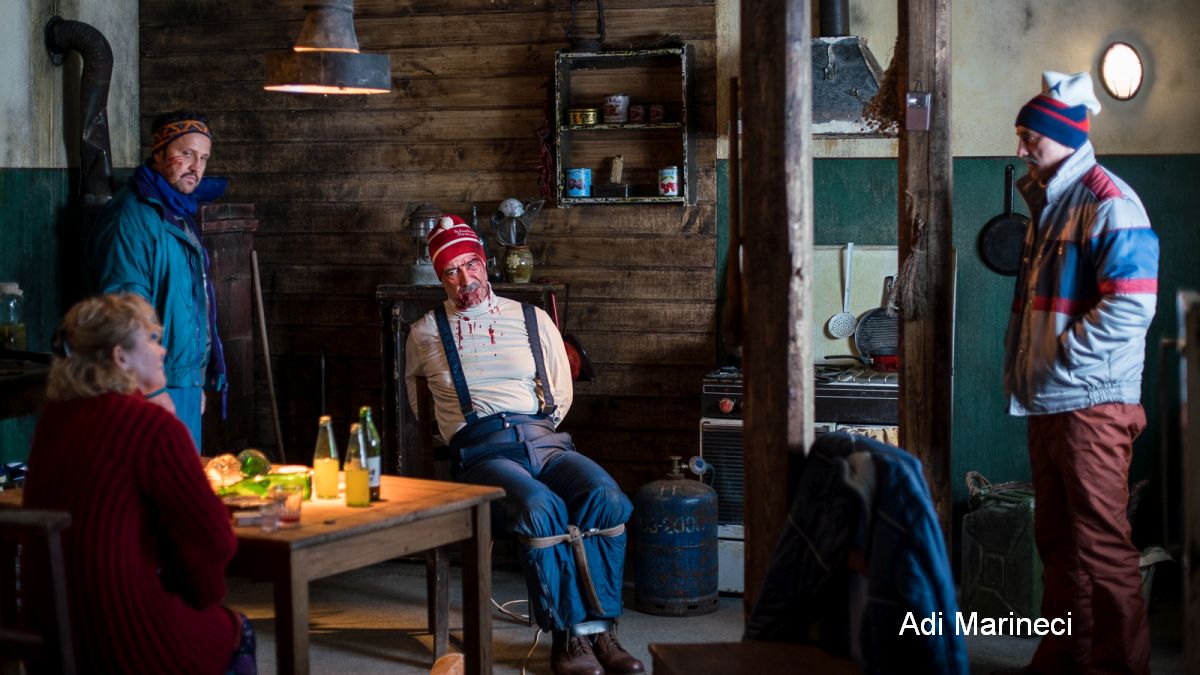Lady Writer Ileana Malancioiu
“My, she is quite a woman! Brave. Rough. She sees and knows everything, and she calls a spade a spade. A deep, edgy soul. A great poet, indeed. Yes, thats what I admire about her: an intelligent strength ( fiery), and equally open to pity, tenderness (in

Corina Sabău, 02.02.2013, 14:26
He is the author of “The Diary of Happiness”, a work that is unique in Romanian literature; it is a fine piece of writing, basically dealing with how the predicament and suffering people went through in communist prisons can be transfigured through faith. Ileana Malanciou is a distinguished poet, with an impressive lifetime achievement, which includes such literary awards as the “Mihai Eminescu” National Poetry Prize, the Grand Prometheus Prize, the Grand “Lucian Blaga” Prize, the Literary and Arts “Adevarul “ Magazine Prize, the “Opera Omnia” Prize awarded by the Bucharest Writers’ Association. Ileana Malanciou’s output includes volumes of poetry, essays and collections of her contributions as columnist for Romania’s leading literary magazines. In late December 2012, Ileana Malancoiu had her second volume of poems “The Legend of the Walled-In Woman” brought out by the “Gallery Press” Publishers in Ireland. Her first book published in Ireland was entitled “ After Lazarus’s Resurrection.”
Two years ago Ileana Malancioiu was a guest of honor at “ Our Language, Romanian”, an event held in the Republic of Moldova. There, Ileana Malancioiu put forward the idea of erecting a bust for writer Paul Goma, the most important Romanian intellectual dissident, now living in Paris. The event materialized in a volume, entitled “The 2012 Poetry Book”, brought out by ART Publishers. The volume opens up with Ileana Malancioiu’ s poem and includes a choice of poems written by authors from Bessarabia.
Speaking now is Ileana Malancioiu: ” What the intellectuals from Bessarabia did as they were fighting for the Romanian language was of utmost importance. They made the Greater Romania, culture wise. There are good poets there and the Romanian intellectuals’ prejudice still holds, that people there write like in the 19thcentury. I wanted to speak about Paul Goma as I believe that Romania has done a great injustice to him. There are still some of us who speak about him with love. Maybe it was his fault, since his diary has caused some trouble. Actually he voiced his despondency that our enthusiasm in the early 1990s fizzled out. He spoke out of that despondency and people felt the need to isolate him, which is not fair, since he is nonetheless the icon of our resistance, as much as it was. I don’t think it is normal for him to live alone and isolated in Paris, while in Romania all sorts of phony dissidents have cropped up in the meantime. It seems to me the sadness is unfathomable for a man like him to be isolated.”
Ileana Malancioiu graduated form the Philosophy Faculty in 1968. In 1978 her doctoral dissertation was published, entitled. “The Tragic Guilt”. Six volumes of poems were published in the meantime. She had no other choice but to give up on philosophy because, as she said, “those were no times for philosophy.” Even defending her diploma paper, entitled “The Place of Philosophy of Culture in Lucian Blaga’s System” caused quite a stir. Most of her professors accused her of opting for Lucian Blaga’s philosophy after studying Marxist philosophy for five years.
Ileana Malanciou’s activity triggered another scandal when she worked for the television in the early 1970s. Those were the so-called times of opening, when she edited a feature entitled “Contemporary Romanian Poets” where she managed to bring to the public’s attention poems by Alexandru Philippide, Constantin Noica, Dimitrie Stelaru, Eugen Jebeleanu, Emil Botta. When Ileana Malancioiu had the nerve to ask why her show had been cut off from the program, her case was subject to debate in a Communist Party session and Ileana Malancioiu stepped down and quit.
In 1985, her volume ”Climbing the Mountain” was withdrawn from bookshops, the authorities banning any review of the volume. Three years later, as censorship was growing stronger and made its presence felt even in philosopher Constantin Noica’s texts, Ileana Malancioiu submitted her resignation from the “ Viata Romaneasca” literary magazine. We know all to well the Securitate had her under surveillance; that was also confirmed by Dorin Tudoran’s Securitate file.
And yet, Ileana Malanciou says: “I don’t have the merit of real dissidents by far. I only did what a writer has to do to rescue some books. I didn’t accept lies, I didn’t accept censorship, but it cannot be said that I was a dissident. Every time someone asks, I say that Paul Goma was a real dissident. Giving yourself more credit than you deserve is embarrassing. It was a really difficult period, but at ‘Viata romaneasca’ we had a different status than at other magazines, because the magazine had a smaller circulation. For instance, we could push through, with some struggle, texts that would have never seen the light of day in the ‘Romania Literara’ magazine.”
Ileana Malancioiu’s first role models were Sergei Esenin, Mihai Eminescu and George Bacovia.
She talks about their influence and about her obsessions: “I had as much luggage to start me on the road as anyone else. Then you discover yourself. After the first attempts, which were tributary to Eminescu and Bacovia, I threw everything away, because I realized it was imitation, and I had to start over and say whatever I have to say. However, without this school, the model of the great poets, I would have never got to the point where I could say whatever I have said. After that, I started reading Baudelaire properly. By properly I mean reading him line by line, with a pencil in hand, to understand why he is still relevant while others aren’t. Generally, a poet is obsessed with death, especially if he or she is past a certain age. The obsession becomes so great that at a certain point you start being afraid and stop talking about death. You avoid the word as if you avoided death itself. But silence is not bad. There comes a time when you can say things that no longer represent you. And it is better to take some time and read. Reading breaks are very good. You can reach a new stage in your writing, or you can go out with a bang. You can wrap it up without starting to decay.”
To quote the poet, “I don’t want to be different in poetry than I am in reality, but the striving to discover the one word that can express me truly has never ceased, I shudder at the thought that there comes a time when this crisis leads, willy-nilly, to the ultimate silence.” Unquote.






























